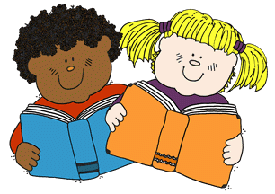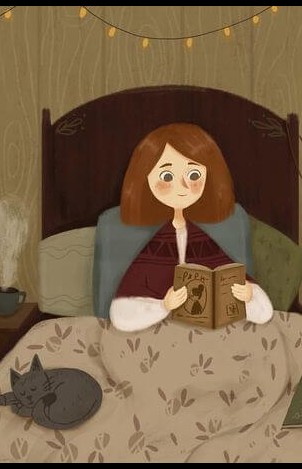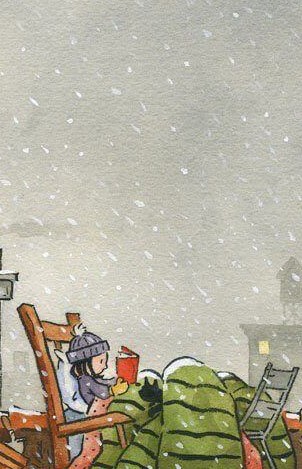Literacy Blogs
- All
- 3-cueing
- academic learning time
- academic vocabulary
- accommodations
- accountability testing
- Active View of Reading
- adolescent literacy
- afterschool programs
- alphabet
- amount of instruction
- amount of reading
- argument
- assessment
- auding
- author awareness
- automaticity
- balanced literacy
- beginning reading
- Book Buddies
- Book Flood
- challenging text
- classroom organization
- close reading
- coaching
- cohesion
- Common Core State Standards
- complex text
- comprehension strategies
- content area reading
- context analysis
- curriculum materials
- Daily 5
- decoding
- departmentalization
- DIBELS
- dictionary skills
- digital texts
- disciplinary literacy
- dyslexia
- early interventions
- effective teachers
- Emily Hanford
- executive function
- family literacy
- fingerpoint reading
- foundational skills
- graphic novels
- guided reading
- heterogeneous grouping of students
- homework
- improving reading achievement
- independent reading
- independent reading level
- informal reading inventories
- informational texts
- instructional level
- invented spelling
- jigsaw instruction
- knowledge
- leadership
- learning disabilities
- Lexiles
- linguistic comprehension
- listening comprehension
- literacy charities
- literacy policy
- literary interpretation
- main idea
- morphology
- motivation
- narrative text
- National Early Literacy Panel
- nonsense words
- oral language
- oral reading fluency
- paraphrasing
- Pause, Prompt, Praise (3P)
- personalized learning
- phonemes
- phonemic awareness
- phonics
- press and media
- principals
- prosody
- Readers' Workshop
- reading comprehension
- reading disabilities
- reading intervention
- reading levels
- reading models
- Reading Recovery
- reading research
- reading skills
- reading strategies
- reading to children
- reading wars
- reading-writing relations
- remedial reading
- rereading
- Response to Intervention
- Scarborough's Rope
- science of reading
- seatwork
- semantics
- sentence comprehension
- sequence of instruction
- set for consistency
- set for variability
- shared reading
- shared reading
- sight vocabulary
- simple view of reading
- Simple View of Reading
- small group instruction
- social studies
- sound walls
- Special Education
- speech-to-print phonics
- spelling
- stamina
- summarizing
- Sustained Silent Reading
- syllabication
- syntax
- syntax
- testing
- text complexity
- text interpretation
- text reading fluency
- text structure
- theme
- think-pair-share
- trauma
- visualization
- vocabulary
- word walls
- writing
- zone of proximal development (ZPD)
Decoding or Fluency Instruction in Middle School?
Teacher question At our middle school, two-thirds of our students are not proficient readers (55% of them read below the 30th percentile). Our staff decided that to help address this problem all our students would engage in repeated reading in each core content class once a week. This would be done with grade-level text. Teachers read the passage, students choral read with teacher, and then students read with a partner. That's it. We have been told that this way of repeated reading will help our students improve their phonics and fluency. I'm not in full agreement with this, but we have ...
Do Screening and Monitoring Tests Really Help?
Teacher Question: I’m surprised that you don’t write about screening and monitoring tests. I’ve been a teacher for 24 years (first-grade) and I’m considering an early retirement. It seems like I’m supposed to test my students more than teach them. We just test and get ready for tests. I feel so sorry for the boys and girls. I want to teach reading, not FSF, ISF, PSF. NWF, WRF, ORF, LNF. Help me, Dr. Shanahan. Is this what’s best? Is this really a part of the “science of reading”? Shanahan response: I feel your pain. When I was a first-grade teacher, we didn’t have ...
Why Don't You Encourage Reading Practice?
Teacher question: Why don’t you like independent reading? It only makes sense for students to practice reading if they’re going to get good at it. My students live in poverty. They won’t read at home, so I provide 20 minutes a day for them to just read. Practice makes perfect, you know. Shanahan responds: You’re right about the importance of practice. Practice has value in the development of any skilled activity. I have no doubt that reading practice plays a role in making kids better readers. I don’t oppose encouraging students to practice their reading. However, as a but I do believe in making instructional ...
How Much Phonics Should I Teach?
Teacher: I keep hearing about the science of reading and that I need to teach phonics (I’m a second-grade teacher). I’m okay with that but there is a lot to teach in reading. How much of the time should I spend teaching phonics? Shanahan’s response: Man was I surprised. I’d already spoken to the principal about the school curriculum. He’d given me an overview and assured me that what his teachers needed was training in academic language and how to ask high level comprehension questions. The speaker at a professional conference had stressed the importance of those in high poverty schools and ...
How do we teach Executive Function in reading?
Teacher question: Could you tell us how to teach “Executive function skills”? We don’t teach them at our school, and our core program doesn’t emphasize them. However, the graduate program I’m in says they are important. Our school district emphasizes the reading rope, and it doesn’t even mention executive function. But my professor showed us the “Active View of Reading Model” which does include it. Which of these is the science of reading and what should I be doing to teach executive function? I teach third grade. Shanahan response: Let’s first try to figure out what executive function is. Basically, the term executive ...
How to Teach Writing Fluency
Teacher question: What can you tell me about writing fluency in grades K-5? Our district is making a major effort to improve writing which is great, but our kids don’t’ write much. I don’t mean that the teachers don’t give writing assignments (they do), but the writing that the kids produce is very limited and it takes them a long time. I can’t see how we can improve their writing if they can’t write more. Shanahan response: Writing fluency is a slippery fish. Definitions of the term vary greatly within the profession (Latif, 2013). Not surprisingly, those differences in definition result in ...
Support Literacy Charities 2021
Most readers of Shanahan on Literacy are professionals in the field or parents with concerns about their children’s reading. They care deeply about literacy education. Another way to express your commitment to literacy is to support literacy charities. Several years ago, I started to recommend literacy charities. Since then, each year, I comb through the Charity Navigator ratings to identify 4-star rated programs that are national or multi-regional in scope. The charities listed here (and that will continue to be listed on my site for the next 12 months https://shanahanonliteracy.com/charities) provide books and other literacy services, are transparent in their reporting, and ...
Teaching Oral Reading Fluency to Older Students
Oh goodness, everybody’s least favorite topic (except maybe Tim Rasinski). What I’m talking about is fluency instruction/practice for older students… grades 4 and up, let’s say. No one gets too bent out of shape if I talk about little kids working on their oral reading, but when those young’uns reach 9- or 10-years-old that presumably is baby stuff. I get why that is. First, the research on fluency instruction has focused heavily on two groups: kids in grades 1-4 and remedial readers in grades 1-12 (NICHD, 2001). I can’t tell a 6th grade teacher that there is research showing that if she devotes ...
RIP to Advanced Phonemic Awareness
Not long ago, I dared question the evidence supporting the teaching of “advanced phonemic awareness.” That elicited negative reactions from some educators who found my assertions threatening. Their notion was that if I raised doubts about this, then balanced literacy, whole language, cueing systems and the fall of the Republic would be manifest upon the land. I’m not saying that there aren’t balanced literacy fanatics who cheer when I tell the truth about something like that (I wish they were as happy when I explain why it’s a bad idea to teach kids to guess words from context in place of ...
What is the Science of Reading?
Lots of questions about the “science of reading” this week. What is the “science of reading?” That depends on who you talk to. There is no agreed upon definition. Nor is there any official body like the Académie Française that can dictate a meaning by fiat. Last year, Reading Research Quarterly published a science of reading issue (it blossomed into two with more than 50 articles). There weren’t 50 definitions, but it was close. The disagreements turned on two points: the role of instructional research and the scope of reading covered. Some use the term in reference to neurological and cognitive science studies of ...









